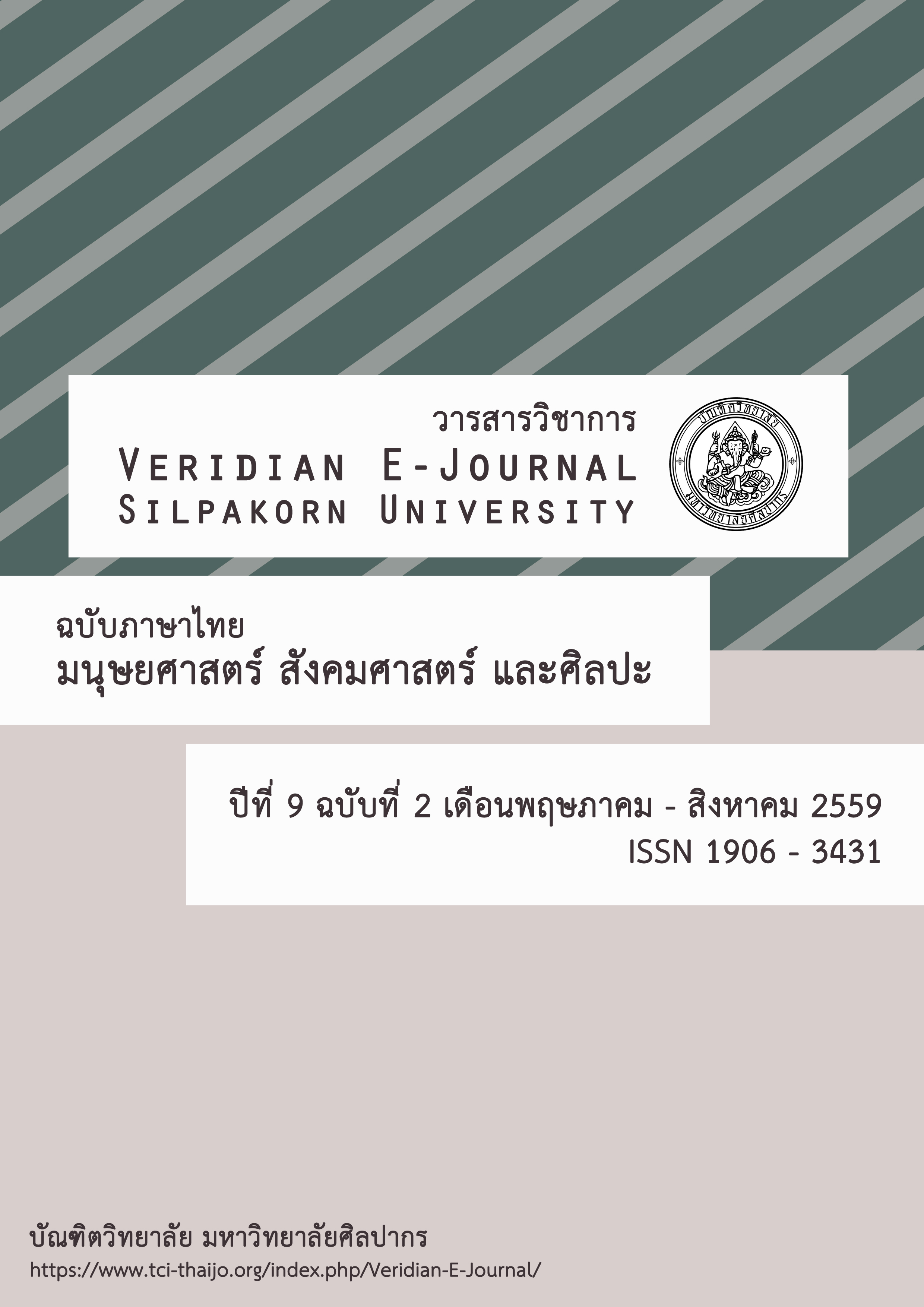การพัฒนาคู่มือฝึกอบรมผลิตภัณฑ์สีเขียว สำหรับนิสิตสาขาวิชาสิ่งแวดล้อมศึกษา มหาวิทยาลัยมหาสารคาม
Main Article Content
Abstract
งานวิจัยมีวัตถุประสงค์เพื่อพัฒนาคู่มือฝึกอบรมผลิตภัณฑ์สีเขียว สำหรับนิสิตสาขาวิชาสิ่งแวดล้อมศึกษา มหาวิทยาลัยมหาสารคาม และเพื่อศึกษาดัชนีประสิทธิผลของคู่มือฝึกอบรมและเปรียบเทียบความรู้และทัศนคติต่อผลิตภัณฑ์สีเขียว กลุ่มตัวอย่างคือนิสิตปริญญาตรี ชั้นปีที่ 1 สาขาวิชาสิ่งแวดล้อมศึกษา คณะสิ่งแวดล้อมและทรัพยากรศาสตร์ มหาวิทยาลัยมหาสารคาม จำนวน 32 คน ได้มาโดยการสมัครใจเข้าร่วมฝึกอบรม เครื่องมือที่ใช้ในการวิจัย ได้แก่ คู่มือฝึกอบรม แบบทดสอบความรู้และแบบวัดทัศนคติ สถิติที่ใช้ในการวิเคราะห์ข้อมูล ได้แก่ ร้อยละ ค่าเฉลี่ย ส่วนเบี่ยงเบนมาตรฐาน และการทดสอบสมมติฐาน t-test ผลการศึกษา พบว่า ประสิทธิภาพของคู่มือหลักสูตรฝึกอบรม มีประสิทธิภาพ เท่ากับ 80.10 / 86.47 ส่วนดัชนีประสิทธิผลของคู่มือหลักสูตรฝึกอบรม เท่ากับ 0.8029 นิสิตที่ใช้คู่มือหลักสูตรฝึกอบรมผลิตภัณฑ์สีเขียว สำหรับนิสิตสาขาวิชาสิ่งแวดล้อมศึกษา มหาวิทยาลัยมหาสารคามมีความก้าวหน้าในการเรียนคิดเป็นร้อยละ 80.29 และนิสิตมีคะแนนเฉลี่ยความรู้และทัศนคติหลังการฝึกอบรมสูงกว่าก่อนการฝึกอบรม อย่างมีนัยสำคัญทางสถิติที่ระดับ .05
The purposes of this research were to develop of green product training manual for students in environmental education, Mahasarakham University, and an effectiveness indexing of the training manual, to study and compare knowledge and attitude. The sample were undergraduate students in year 1, environmental education program, faculty of environment and resource studies, Mahasarakham University, Acquired by voluntarily attending training a sample of 30 people. The instruments used in this research were training manual, knowledge test and attitude measures. The statistics used to percentage, mean, standard deviation and hypothesis testing t-test. The results revealed that the training manual was efficiency of 80.10 / 86.47. The index was equal to 0.8029 effectiveness of the training manual. The manual of green product training manual for students in environmental education, Mahasarakham University, had growth in learning 80.29 percent. The experimental students had an average score of knowledge and attitude after the training more than before training at the level of statistical significance .05.
